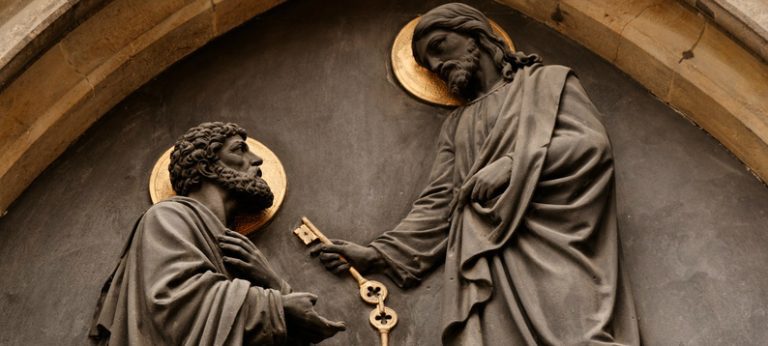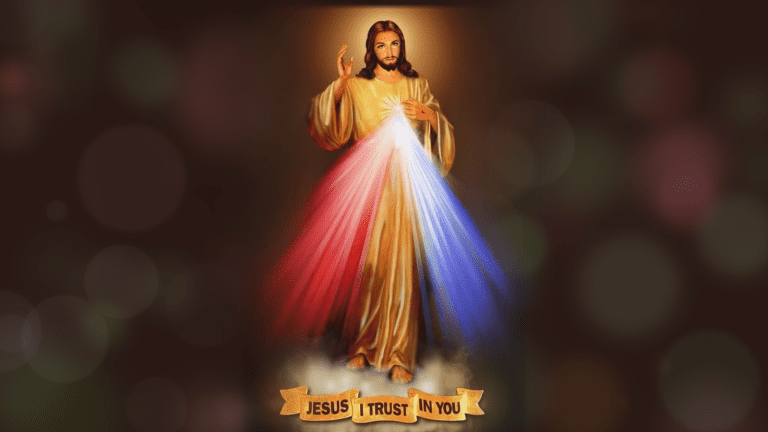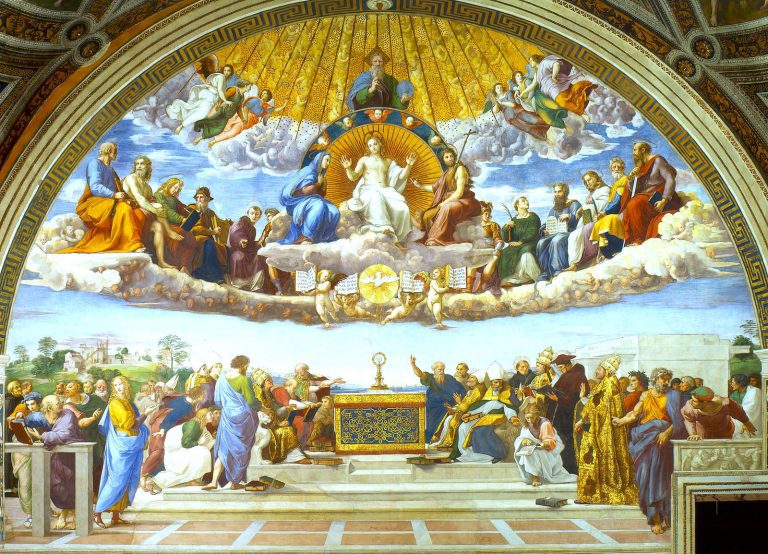The hardest question I faced as a Protestant was Christ’s clear call to Catholic Communion. Jesus repeated fourteen times, “If you do not eat My Body and drink My Blood you do not have life in you.”
The twelfth time Jesus said that, in John 6:66, most of His followers left Him, saying “This is hard!”
Then, by The Miracle of Transubstantiation, He changed bread and wine into His Body and Blood at The Last Supper. He Ordained those in living link with The First Catholic Bishops with the Power to Preside over That Great Miracle at every Catholic Mass to follow, commanding Catholic priests and bishops: “do this in memory of Me.”
St. Paul reaffirms The Power He gave: “This cup of benediction that we bless, is it not The Blood of Christ. This bread that we break, is it not The Body of Christ?”
Are those who provide “alternative” ceremonies the modern “gentiles” to which St. Paul refers in 1 Cor 10: 16-21: For that which the Gentiles sacrifice, they sacrifice to demons and not to God.?
St. Thomas Aquinas tells us about non-Catholic communion: “Do not then run to the contrary things. For neither if you were a king’s son, and having the privilege of your father’s table, should leave it and choose to partake of the table of the condemned and the prisoners in the dungeon, would your father permit it, but with great vehemence he would withdraw you; not as though the table could harm you, but because it disgraces your nobility and the royal table. For verily these too are servants who have offended; dishonored, condemned, prisoners reserved for intolerable punishment, accountable for ten thousand crimes.”
The hardest question must be asked: Can the “offending servants” not include denominations too afraid of losing donations to clearly condemn, in writing, both abortion and abortion-inducing birth control that kills billions of unborn babies?
St. Thomas Aquinas continues: How then are you not ashamed to imitate the gluttonous and vulgar crew, in that when these condemned persons set out a table, you run there and partakest of the viands? Here is the cause why I seek to withdraw you. For the intention of the sacrificers, (justifying the death-dealing confusion they cause) and the person of the receivers, makes the things set before you unclean.”
Then, St. Thomas returns to St. Paul: “And I would not that you should have communion with demons.”









